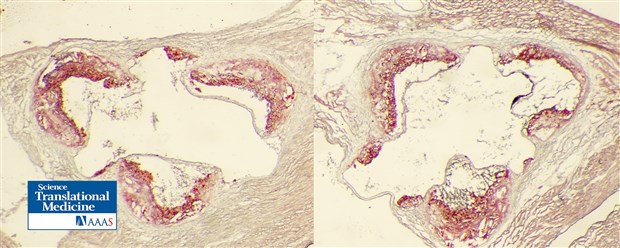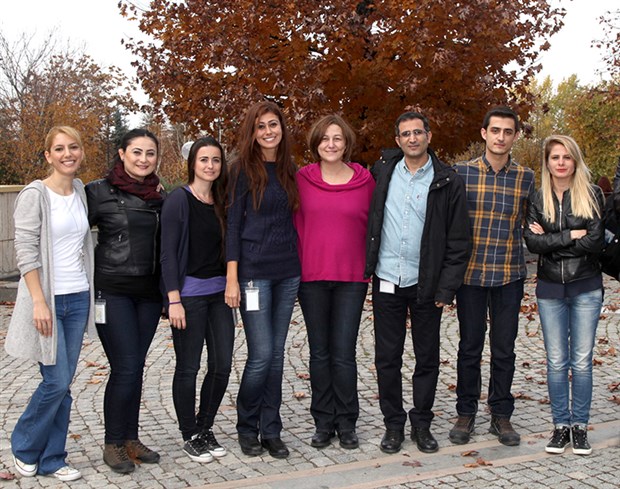 Although fats are known for their bad health effects, this is not true of all fats; certain lipids that your body makes may in fact be good for you. A new study from the laboratory of Asst. Prof. Ebru Erbay, of the Department of Molecular Biology and Genetics and UNAM (Institute of Materials Science and Nanotechnology), that has been published in Science Translational Medicine shows that a lipid with unusual physiological effects that is made by our bodies can prevent atherosclerosis (hardening of the arteries) when supplied orally over the long term.
Although fats are known for their bad health effects, this is not true of all fats; certain lipids that your body makes may in fact be good for you. A new study from the laboratory of Asst. Prof. Ebru Erbay, of the Department of Molecular Biology and Genetics and UNAM (Institute of Materials Science and Nanotechnology), that has been published in Science Translational Medicine shows that a lipid with unusual physiological effects that is made by our bodies can prevent atherosclerosis (hardening of the arteries) when supplied orally over the long term.
 A monounsaturated fatty acid, palmitoleate (PAO) has been previously associated with improved insulin sensitivity in mice and humans. PAO is not found in most common food sources. However, it can be made by de novo lipogenesis (DNL) in adipocytes and the liver. Because DNL and PAO levels increase in obesity and in patients with fatty liver disease and insulin resistance, PAO has been incorrectly associated with these disease states.
A monounsaturated fatty acid, palmitoleate (PAO) has been previously associated with improved insulin sensitivity in mice and humans. PAO is not found in most common food sources. However, it can be made by de novo lipogenesis (DNL) in adipocytes and the liver. Because DNL and PAO levels increase in obesity and in patients with fatty liver disease and insulin resistance, PAO has been incorrectly associated with these disease states.
Previous studies in mice had shown that adipose-tissue-derived PAO could have an important metabolic impact on distant organs; for example, it could improve insulin sensitivity and glucose uptake in muscle while suppressing lipid biogenesis in the liver. These studies clearly showed that PAO had important physiological effects; however, the way in which it operated remained a mystery.
In the new study, the lipidomic analysis of tissues obtained from dyslipidemic mice showed that orally delivered PAO enters the cells and integrates into the membranes of intracellular organelles. The dynamic membrane remodeling of a particular organelle, the endoplasmic reticulum (ER), by means of oral PAO intake had a remarkable impact on the organelle’s functioning. In these mice, the remodeled ER became resilient to stress induced by dyslipidemia. It is known that ER stress contributes to activation of the inflammasome, a multiprotein complex that processes a pro-atherogenic cytokine, IL-1 beta,into its mature, secreted form. Activation of the inflammasome and IL-1 beta has been causally associated with atherosclerosis as well as insulin resistance and diabetes.
The researchers showed that PAO also countered the activation of the inflammasome and suppressed IL-1 beta in circulation and in atherosclerotic plaques. The study findings provide an example of dietary manipulation that can reduce metabolic stress, largely experienced at the level of the organelle, and prevent the inflammation that drives atherosclerosis.

Erbay Research Group : Begüm Kocatürk, Buket Gültekin, Özlem Tufanlı, İnci Onat, Ebru Erbay, İsmail Çİmen, Onur Apaydın, Pelin Telkoparan
